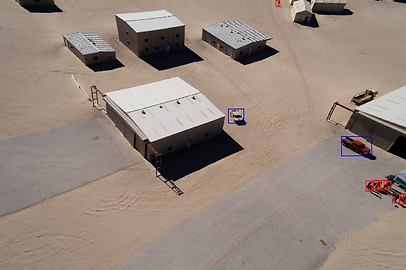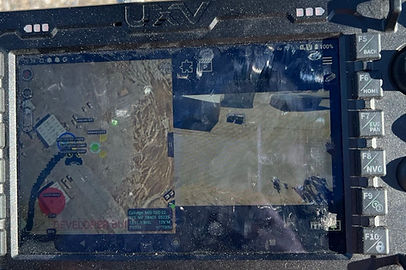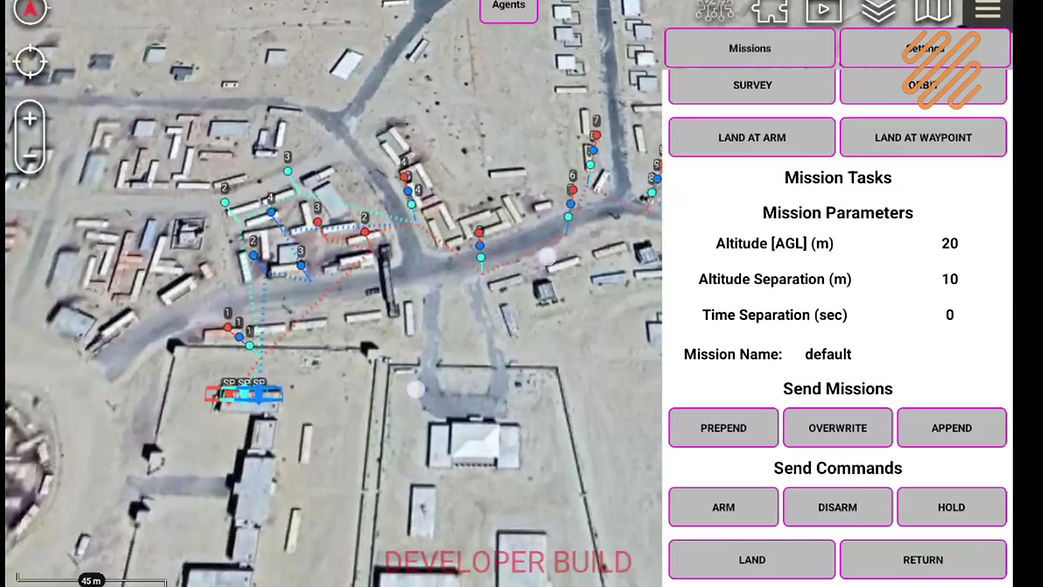

CROSS-DOMAIN AUTONOMY
HyperTeaming autonomous onboard active perception
Mission Systems platform-agnostic Hyper-Teaming autonomy software allows adaptive and collaborative human-robot teaming at the tactical edge.
We believe that multi-agent autonomy should be:
Explainable
Robot actions should be readily understood
Modular
The system should be adaptable
and upgradable
Scalable
Works on many robots
over wide areas
Intuitive
Command and control with low cognitive demand
Generic
Open-architecture, to work
on a variety of platforms
Fast
Able to function in high-tempo operations
CASE STUDY
Coalition partners deployment exercise
The Hyper-Teaming system was recently deployed on exercise with coalition partners in the US, representing the first 1-to-Many autonomous operation under the full control of Australian Army personnel.
But autonomy is only a means to an end. Primarily for ISR, Hyper-Teaming provides actionable insights through direct TAK integration across a common encrypted mesh network. With autonomy running on-board each agent, unnecessary RF communication is minimised, with ATR triggering imagery on target detections, and deconfliction calculated as the mission is launched.
Importantly, the operator can provide tactical guidance to the system, highlighting ingress and egress routes, no-fly zones, or areas of interest through the Hyper-Teaming TAK plugin, or requesting direct video-feed if required.
.png)
.jpg)
_edited.jpg)
PROVEN PERFORMANCE
Software Technology Readiness Level (TRL) = TRL 8
Working closely with Australian industry and defence partners, including AMSL Aero, Cyborg Dynamics, Trusted Autonomous Systems and funded by the Australian Army’s RAS-AI Implementation and Coordination Office (RICO), Hyper-Teaming software has been proven to operate at TRL 8, providing real-time intelligence of opposition forces through to coalition headquarters via the AIA-C4 network.


HUMAN
ON-THE-LOOP
MISSION COMMAND
-
Mission-command using tactical-task syntax (as for humans), translated to temporal-logic
-
Two-way communication/updates based on task, context and need

ADAPTIVE HUMAN-ROBOT
TEAMING
-
Decentralised coordinated behaviour
-
Dynamic reassignment of robots as needed to meet goals
-
On-board simulation/ projection to augment direct observations and guide decision-making

REAL-TIME
OPERATION
-
On-line sensing, decision-making and control, to maintain and act on a common-operating-picture
-
Real-world verification with (experimental) robotic platforms and human participants
MARITIME AUTONOMY
SeaWolf XLUUV autonomy architecture
Mission Systems’ autonomy Architecture is based on the recommendations of the US Navy Unmanned Maritime Systems Program Office (PMS-406) while leveraging the most recent developments in MIT’s MOOS-IvP multi-objective helm. It will be interoperable with US systems.
Our autonomy architecture is environment-centric, with embedded acoustic modelling enabling real-time passive and active sonar performance predictions to directly optimise the detection and tracking of surface and underwater contacts by individual vehicles and swarms.

AIR AUTONOMY
In-flight planning and re-planning for AMSL EVTOL air taxi

Providing bespoke autonomy to a passenger-carrying autonomous CASEVAC variant of the AMSL Vertiia EVTOL aircraft. This includes automated take-off and landing, static and dynamic obstacle detection and avoidance, and GPS-denied operation.